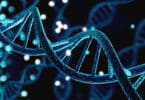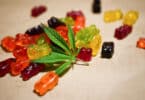Firstly, we addressed the most popular questions from community members – in this case – PTSD and how CBD could help to manage the symptoms.
Question: What is PTSD?
Answer: PTSD is a traumatic event followed by at least one month of: Re-experiencing symptoms – flashbacks, nightmares, frightening thoughts plus increased avoidance – staying away from “triggers”, such as places, events, or objects that are reminders of the traumatic event is advised. Increase arousal – easily startled, tense, difficulty sleeping, angry outbursts. In terms of mood disturbance – trouble remembering specifics of the event, negative thoughts about oneself or the world in general, guilt, loss of interest in enjoyable activities.
While it is natural to feel afraid during and after a traumatic event, some people with PTSD are stressed even when they are not in danger. The psychological harm that PTSD causes often results in the development of secondary problems such as anxiety, depression, and substance abuse.
Question: How is PTSD like anxiety and how is it different?
PTSD is an emotional response to a traumatic event that may have occurred years ago, but the threat remains as if it occurred in the present. Anxiety is an emotional response to something that occurred in the present. According to the National Institute of Health, the 12-month prevalence of any anxiety disorder among adults is 18.1%.
The source if both anxiety and PTSD is the amygdala. There is only one form of cannabis that reduces both anxiety and PTSD at the source, and to which tolerance and dependence does not occur -> CBD.
Question: What is the DMS IV PTSD definition?
Answer: A person is exposed to a traumatic event in which both were present: The person witnessed, experienced, or confronted an event that involved actual or threatened death or injury AND the person’s response was intense fear, helplessness, or horror
The traumatic event is persistently reexperienced: recurrent and intrusive recollections, recurrent dreams, flashbacks, intense psychological distress when exposed to internal or external cues that symbolize or resemble any aspect of the traumatic event.
Persistent avoidance of stimuli associated with the trauma associated with the trauma.
Persistent symptoms of increased arousal such as difficulty sleeping, irritability or outbursts of anger, difficulty concentrating, hypervigilance, exaggerated startle response
The duration of all of the above for > one month. The disturbance causes impairment in relationships, occupational, or other important areas of functioning. Acute PTSD < three months Chronic PTSD > three months.
Question: I have anxiety. Is that similar to PTSD?
Answer: There exists a continuum. Nearly everyone has had, or does have, or will have anxiety in their life. In some of us, it is more intense, and it is diagnosed as an anxiety disorder. In some of us, the anxiety disorder is taken to a higher level, and the diagnosis becomes PTSD. All three – general anxiety – which is seen in just about everyone at some time in their life, anxiety disorder, and PTSD are generated in the amygdala.
CBD treats ALL of these.
As per your request, we are moving the weekly In-house doctor session from Thursday at 1 pm EST, to Thursday at 3 pm EST (That’s UK’s 20:00, NYC’s 15:00 and LA’s 12:00)
[maxbutton id=”10″]If you liked these questions and answers and want more, why not check out the Q&A from – Ask a Doctor- How Does CBD Work And Is It Addictive?
[Image credit- Wikipedia]








